Filter by
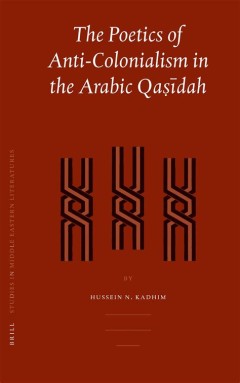
The Poetics of Anti-Colonialism in the Arabic Qaṣīdah
Representing the most sustained investigation of the aesthetics of Anti-Colonialism in modern Arabic poetry, this book chronicles the evolution of a distinct poetics that sought to maintain the integrity of the qaṣīdah without circumventing its historical moment. It painstakingly analyses a selection of odes by four leading twentieth-century poets, Aḥmad Shawqī, Maʿrūf al-Ruṣāfī, Ba…
- Edition
- -
- ISBN/ISSN
- 9789047404408
- Collation
- 304 hlm; ill., lamp.,
- Series Title
- Brill Studies in Middle Eastern Literatures, Volume: 29
- Call Number
- -
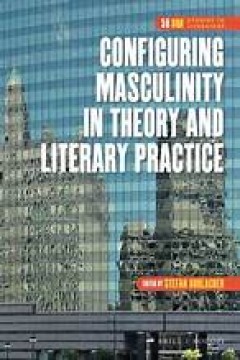
Configuring Masculinity in Theory and Literary Practice
Configuring Masculinity in Theory and Literary Practice combines a critical survey of the most current developments in the emergent field of Masculinity Studies with both a historical overview of how masculinity has been constructed within British Literature from the Middle Ages to the present and a special focus on developments in the 20th and 21st centuries. The volume combines seminal artic…
- Edition
- -
- ISBN/ISSN
- 978-90-04-29900-9
- Collation
- oer.unej.ac.id
- Series Title
- DQR Studies in Literature Online, Volume: 58
- Call Number
- -
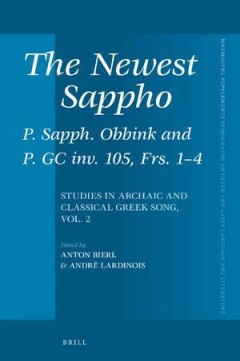
The Newest Sappho: P. Sapph. Obbink and P. GC inv. 105, Frs. 1-4 = Studies in…
Retraction Notice: Postscript (March, 2021): The Publisher notifies the readers that Chapter 2 of this volume (Dirk Obbink, “Ten Poems of Sappho: Provenance, Authenticity, and Text of the New Sappho Papyri”) has been retracted. For more information please view the statement by the editors in the Retraction Notice in the front matter of this volume and on page 9 of the Introduction. The reas…
- Edition
- -
- ISBN/ISSN
- 9789004314832
- Collation
- 560 hlm; ill., lamp.,
- Series Title
- Mnemosyne, Supplements, Volume: 392
- Call Number
- -
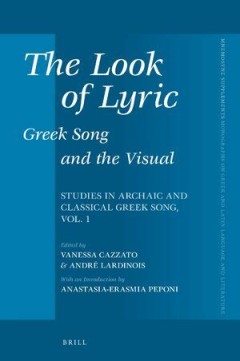
The Look of Lyric: Greek Song and the Visual = Studies in Archaic and Classic…
The Look of Lyric: Greek Song and the Visual addresses the various modes of interaction between ancient Greek lyric poetry and the visual arts as well as more general notions of visuality. It covers diverse poetic genres in a range of contexts radiating outwards from the original performance(s) to encompass their broader cultural settings, the later reception of the poems, and finally also thei…
- Edition
- -
- ISBN/ISSN
- 9789004314849
- Collation
- 404 hlm,: ill, lamp;
- Series Title
- Mnemosyne, Supplements
- Call Number
- -

Neues von der Insel = Englische Literatur und Kultur der Frühen Neuzeit in d…
Ein interdisziplinärer Band im Open-Access: Die Aufwertung der Volkssprachen in der Frühen Neuzeit führte zu einer Intensivierung und internationalen Öffnung der europäischen Übersetzungskultur. Der Gebrauch des Englischen bleibt in dieser Zeit allerdings weitgehend auf die Insel beschränkt, während die Sprache auf dem Kontinent noch wenig geläufig ist. Erst seit dem 18. Jahrhundert ge…
- Edition
- 1
- ISBN/ISSN
- 9783662669495
- Collation
- XII, 467 ill; lamp
- Series Title
- 2
- Call Number
- -

Neoromantik der Jahrhundertwende = Transformationen eines romantischen Erzäh…
Dieses Open-Access-Buch beschreibt die rege Wiederaufnahme des Romantischen in der literarischen Landschaft um 1900. Es zeichnet die vergessene Diskursgeschichte einer sogenannten ‚Neuromantik‘ nach, um anschließend zu analysieren, was genau sich in diesen Texten im Vergleich zur historischen Romantik verändert hat. Die Neoromantik der Jahrhundertwende lässt sich damit als eine folgenrei…
- Edition
- 1
- ISBN/ISSN
- 9783662662892
- Collation
- XVII, 392 hlm; ill., lamp.,
- Series Title
- 2
- Call Number
- -
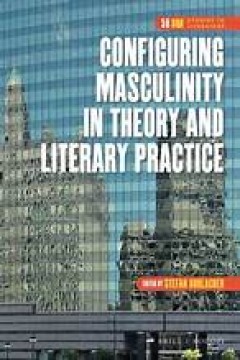
Configuring Masculinity in Theory and Literary Practice
Configuring Masculinity in Theory and Literary Practice combines a critical survey of the most current developments in the emergent field of Masculinity Studies with both a historical overview of how masculinity has been constructed within British Literature from the Middle Ages to the present and a special focus on developments in the 20th and 21st centuries. The volume combines seminal artic…
- Edition
- -
- ISBN/ISSN
- 978-90-04-29899-6
- Collation
- -
- Series Title
- DQR Studies in Literature Online, Volume: 58 DQR Studies in Literature, Volume: 58
- Call Number
- -

A Narratological Approach to Lists in Detective Fiction
This open access book examines how the form of the list features as a tool for meaning-making in the genre of detective fiction from the nineteenth to the twenty-first century. The book analyzes how both readers and detectives rely on listing as an ordering and structuring tool, and highlights the crucial role that lists assume in the reading process. It extends the boundaries of an emerging fi…
- Edition
- 1
- ISBN/ISSN
- 978-3-031-33227-2
- Collation
- oer.unej.ac.id
- Series Title
- Crime Files
- Call Number
- 379
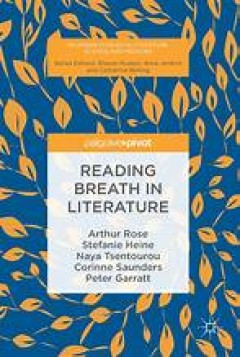
Reading Breath in Literature
This open access book presents five different approaches to reading breath in literature, in response to texts from a range of historical, geographical and cultural environments. Breath, for all its ubiquity in literary texts, has received little attention as a transhistorical literary device. Drawing together scholars of Medieval Romance, Early Modern Drama, Fin de Siècle Aesthetics, American…
- Edition
- 1
- ISBN/ISSN
- 978-3-319-99948-7
- Collation
- -
- Series Title
- Palgrave Studies in Literature, Science and Medicine
- Call Number
- X, 134
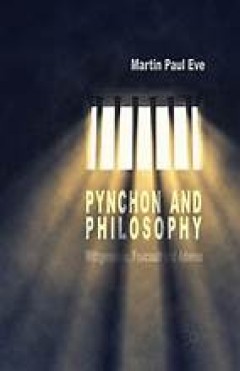
Pynchon and Philosophy
Pynchon and Philosophy radically reworks our readings of Thomas Pynchon alongside the theoretical perspectives of Wittgenstein, Foucault and Adorno. Rigorous yet readable, Pynchon and Philosophy seeks to recover philosophical readings of Pynchon that work harmoniously, rather than antagonistically, resulting in a wholly fresh approach. Dr. Martin Paul Eve is a lecturer in literature at the…
- Edition
- 1
- ISBN/ISSN
- 978-1-137-40550-0
- Collation
- -
- Series Title
- -
- Call Number
- XIII, 229
 Computer Science, Information & General Works
Computer Science, Information & General Works  Philosophy & Psychology
Philosophy & Psychology  Religion
Religion  Social Sciences
Social Sciences  Language
Language  Pure Science
Pure Science  Applied Sciences
Applied Sciences  Art & Recreation
Art & Recreation  Literature
Literature  History & Geography
History & Geography